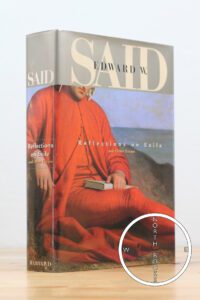In the complex landscape of Middle Eastern literature and history, books about Palestine play a crucial role in illuminating the Palestinian experience. These works offer diverse perspectives on the ongoing conflict, the rich cultural heritage, and the human stories that often get lost in political narratives. From academic analyses to personal memoirs, fiction to visual art, this curated selection provides a comprehensive view of Palestinian life, struggle, and resilience.
The Question of Palestine by Edward Said
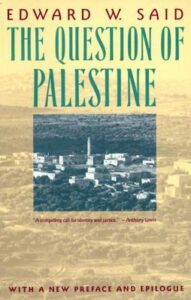
Edward Said’s seminal work, “The Question of Palestine,” remains a cornerstone in understanding the Palestinian struggle. Published in 1979, it challenged the erasure of Palestinian identity in global discourse. Said examines the historical presence of Palestinians, the impact of Zionist settler colonialism, and the emergence of a collective Palestinian identity. His eloquent arguments establish that Zionism has always been a form of colonialism, built on the dehumanization of the Arab peoples who already lived in Palestine.
Mornings in Jenin by Susan Abulhawa
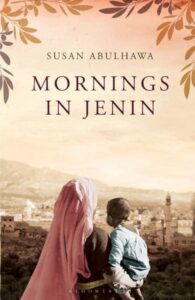
Susan Abulhawa’s multigenerational saga, “Mornings in Jenin,” offers a deeply human perspective on the Palestinian experience. Following the Abulheja family from their displacement in 1948 to life in a refugee camp in Jenin, the novel traverses multiple historical events including the 1967 war and the First Intifada. Abulhawa’s vivid prose brings to life the tragedy of ethnic cleansing and the enduring spirit of Palestinian families across generations.
Men in the Sun and Other Palestinian Stories by Ghassan Kanafani
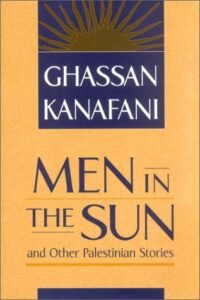 Ghassan Kanafani’s collection, “Men in the Sun and Other Palestinian Stories,” showcases the author’s modernist approach to storytelling. His narratives explore the psychological impact of war, exile, and displacement on Palestinians. Kanafani’s characters face moral dilemmas and emotional strife, offering a nuanced portrayal of the Palestinian experience that goes beyond political rhetoric.
Ghassan Kanafani’s collection, “Men in the Sun and Other Palestinian Stories,” showcases the author’s modernist approach to storytelling. His narratives explore the psychological impact of war, exile, and displacement on Palestinians. Kanafani’s characters face moral dilemmas and emotional strife, offering a nuanced portrayal of the Palestinian experience that goes beyond political rhetoric.
Rifqa by Mohammed El-Kurd
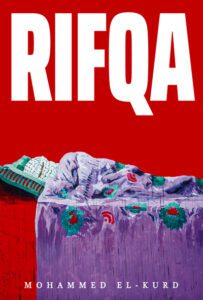
Mohammed El-Kurd’s poetry collection “Rifqa,” named after his grandmother who is older than the state of Israel, offers a contemporary voice in Palestinian literature. El-Kurd, known for his activism in Sheikh Jarrah, uses poetic verse to tell a semi-autobiographical account of growing up under occupation. His work blends personal experiences with broader political themes, capturing the daily realities of Palestinian life.
The Punishment of Gaza by Gideon Levy
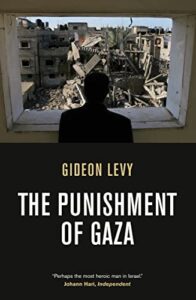
In “The Punishment of Gaza,” Israeli journalist Gideon Levy provides a critical examination of Israel’s actions in Gaza. Through detailed journalistic accounts, Levy documents the stories of everyday Palestinians suffering under missile attacks, airstrikes, and the ongoing siege. His work challenges Israeli policies and asks hard questions about the human cost of the conflict.
Salt Houses by Hala Alyan
Hala Alyan’s “Salt Houses” follows a Palestinian family across multiple generations and countries. Beginning with a wedding in Nablus in 1963, the novel explores themes of displacement, identity, and the meaning of home. Alyan’s lyrical prose captures the complexities of Palestinian diaspora experiences, from Kuwait to Lebanon to America.
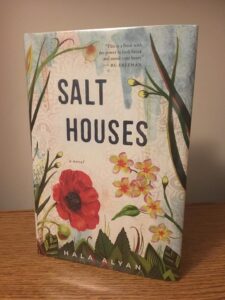
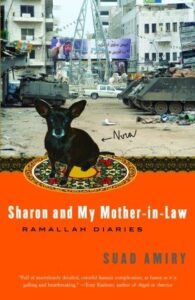
Sharon and My Mother-in-Law: Ramallah Diaries by Suad Amiry
Suad Amiry’s memoir, “Sharon and My Mother-in-Law: Ramallah Diaries,” offers a unique blend of humor and poignant observation. Covering the period from 1981 to 2004, Amiry recounts her experiences living in Ramallah, including the absurdities of daily life under occupation. Her witty narrative provides a refreshing perspective on the challenges faced by Palestinians.
These Olive Trees by Aya Ghanameh
“These Olive Trees” by Aya Ghanameh is a children’s book that highlights the importance of olive trees in Palestinian culture and identity. Through the story of a little girl named Oraib, the book introduces young readers to the realities of displacement and the deep connection Palestinians have to their land. Ghanameh’s illustrations and simple narrative make complex issues accessible to children.

A Child in Palestine by Naji al-Ali
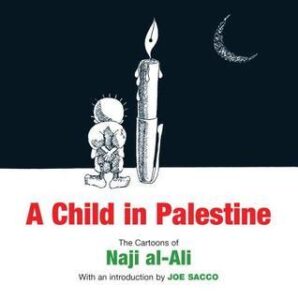
Naji al-Ali’s “A Child in Palestine” is a collection of political cartoons featuring Handala, a barefoot 10-year-old boy who has become an iconic symbol of Palestinian resistance. Al-Ali’s cartoons, published across the Middle East in the 1970s, played a significant role in stoking Palestinian nationalism and continue to resonate with Palestinians worldwide.
Edward Said’s “Reflections on Exile”
Edward Said’s “Reflections on Exile” is a comprehensive collection of essays that showcases his talent for examining politics, nationalism, and history through literary criticism. The 656-page tome covers a wide range of topics, from Said’s personal experiences growing up in Cairo to the evolution of contemporary Arabic literature. It also touches on more controversial moments in Said’s life, such as when his Columbia University office was set on fire after being labeled a “Nazi” by the Jewish Defence League.
These books about Palestine offer a multifaceted view of the Palestinian experience, from historical analyses to personal narratives, fictional accounts to visual representations. They provide readers with a deeper understanding of the complexities of Palestinian life, history, and aspirations. As the struggle for Palestinian rights continues, these literary works serve as crucial tools for education, empathy, and advocacy, ensuring that Palestinian voices and stories are heard and remembered.
Read More:


